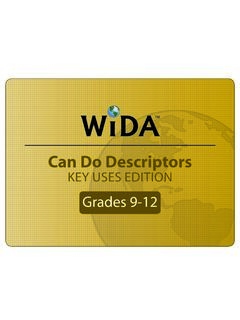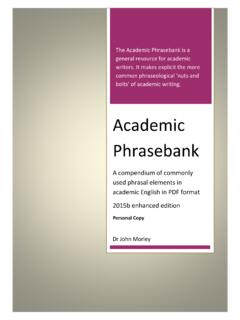Transcription of Essential Teaching Skills, Third Edition - Khazar
1 Incorporates the new Third QTS standards for 2007 Edition Essential Teaching Skills Chris Kyriacou Essential Teaching Skills Third Edition Chris Kyriacou Text Chris Kyriacou 2007. Illustrations Nelson Thornes Ltd 1991, 1998, 2007. The right of Chris Kyriacou to be identi ed as author of this work has been asserted by him in accordance with the Copyright, Designs and Patents Act 1988. All rights reserved. No part of this publication may be reproduced or transmitted in any form or by any means, electronic or mechanical, including photocopy, recording or any information storage and retrieval system, without permission in writing from the publisher or under licence from the Copyright Licensing Agency Limited, of Saffron House, 6 10 Kirby Street, London EC1N 8TS.
2 Any person who commits any unauthorised act in relation to this publication may be liable to criminal prosecution and civil claims for damages. First published in 1991 by Basil Blackwell Ltd Reprinted in 1992 by Simon and Schuster Education Reprinted in 1995 by Stanley Thornes (Publishers) Ltd Second Edition 1998. Reprinted in 2001 by Nelson Thornes Ltd Third Edition published in 2007 by: Nelson Thornes Ltd Delta Place 27 Bath Road CHELTENHAM. GL53 7TH. United Kingdom 09 10 11 / 10 9 8 7 6 5 4 3 2. A catalogue record for this book is available from the British Library ISBN 978 0 7487 8161 4. Illustrations by Clinton Banbury Page make-up by Florence Production Ltd, Stoodleigh, Devon Printed and bound in China by 1010 Printing International Ltd.
3 1111. 21. 31. Contents 4. 51. 61 Preface v 7. 8. 1 Developing your Teaching skills 1. 9. The nature of Teaching skills 1 Studies of Teaching skills 2 . 10. De ning Essential Teaching skills 4 The development of Teaching 1. skills 11 Further reading 17. 1112. 3 2 Planning and preparation 19. 4 The elements of planning and preparation 19 The purposes and 5 functions of planning 21 Lesson planning 24 Lesson preparation 29. 6 Further reading 33 Key questions about your planning and 7 preparation 34. 8. 9 3 Lesson presentation 35. 20 The teacher's manner 35 Teacher talk activities 36 Academic 1 tasks 41 Teaching styles and learning styles 45 Matching work to 2 pupil ability and needs 47 Using resources and materials 51 Further 3 reading 53 Key questions about your lesson presentation 53.
4 4 4 Lesson management 54. 5 Beginnings, transitions and endings 54 Maintaining pupils'. 6 involvement 57 Handling the logistics of classroom life 62. 7. 8 Managing pupil movement and noise 64 Further reading 67. 9 Key questions about your lesson management 67. 30 5 Classroom climate 68. 1 Establishing a positive classroom climate 68 Motivating pupils 72. 2 Your relationships with pupils 74 Enhancing pupils' self-esteem 76. 3 Classroom appearance and composition 79 Further reading 82. 4 Key questions about your classroom climate 82. 5. 6 Discipline 83. 6. The nature of pupil misbehaviour 83 Establishing your authority 86.
5 7. 8 Pre-empting pupil misbehaviour 90 Investigating and counselling 92. 9 Using reprimands 93 Using punishments 96 Dealing with confrontations 100 Other strategies 101 Further reading 103. 40. 1 Key questions about your use of discipline 104. 2 7 Assessing pupils' progress 105. 3 The purposes of assessment 105 Types of assessment 107 Assessment 4 activities in the classroom 111 Carrying out assessment activities 114. 5 Marking, recording and reporting 116 Further reading 120 Key 46 questions about your assessment of pupils' progress 120. 471111. IV CONTENTS. 8 Re ection and evaluation 121. Self-evaluation 122 Collecting data about your current practice 126.
6 Teacher appraisal 130 Managing your time 132 Dealing with stress 134 Further reading 138 Key questions about your re ection and evaluation 138. Bibliography 140. Author index 146. Subject index 149. 1111. 21. 31. Preface 4. 51. 61 In this book I outline the Teaching skills which are involved in effective Teaching . The 7 book is designed to meet the needs of student teachers and experienced teachers wishing 8 to explore and develop their own practice. It will also be of use to those involved in 9 helping others to develop Teaching skills or with an interest in this topic generally. 10. I have been very grati ed by the immense popularity of this book since it rst appeared.
7 1. This new ( Third ) Edition has been revised to take account of important developments 1112. in education policy classroom practice, the introduction of new professional standards 3. for beginning and experienced teachers, and the move towards evidence-based Teaching . 4. This revised text incorporates developments in personalised learning, assessment for 5. learning, whole-class interactive Teaching , ICT, inclusion, initial teacher training, 6. continuing professional development, and the Every Child Matters agenda. 7. 8. 9. 20. 1. 2. 3. 4. 5. 6. 7. 8. 9. 30. 1. 2. 3. 4. 5. 6. 7. 8. 9. 40. 1. 2. 3. 4. 5. 46.
8 471111. 1111. 21. 31. 1 Developing your 4. 51 Teaching skills 61. 7. 8. 9 The essence of being an effective teacher lies in knowing what to do to foster pupils'. 10 learning and being able to do it. Effective Teaching is primarily concerned with setting 1 up a learning activity for each pupil which is successful in bringing about the type of 1112 learning the teacher intends. The difference between knowing what to do and being 3 able to do it can be well illustrated by making an analogy with playing tennis. A player 4 may know that in a particular situation a lob over the opponent's head is required, but 5 whether that shot can be played successfully may be an entirely different matter!
9 The 6 player's skills involve three elements. First, the knowledge about possible types of shots;. 7 second, the decision-making involved in deciding that a lob is in fact the most 8 appropriate shot required; and Third , the action involved in executing that shot. 9. 20. 1 The nature of Teaching skills 2. 3 Successful Teaching skills thus crucially involve knowledge, decision-making and action. 4 This distinction between these three elements underpinning skills is extremely 5 important, because skilful Teaching is as much a thinking activity as it is observable 6 actions. Developing your skills as a teacher therefore is as much about developing and 7 extending your knowledge about the decision you may take in a particular situation as 8 it is about the successful execution of the observable action.
10 9. 30. 1. 2. 3. 4. 5. 6. 7. 8. 9. 40. 1. 2. 3. 4. 5. 46. 471111 You must develop your action skills 2 Essential Teaching SKILLS. Almost all teachers during their initial training will spend some time observing experienced teachers, and increasing numbers of experienced teachers now spend some time observing colleagues as part of their own or their colleagues' programme of professional development. Such observation can be immensely valuable; seeing how another teacher performs can stimulate your own ideas about your Teaching . It may do this simply by acting as a model, either good or bad (seeing a colleague use an exceptionally well-prepared worksheet or one containing some obvious shortcomings may both stimulate your thinking about your own use of worksheets).






